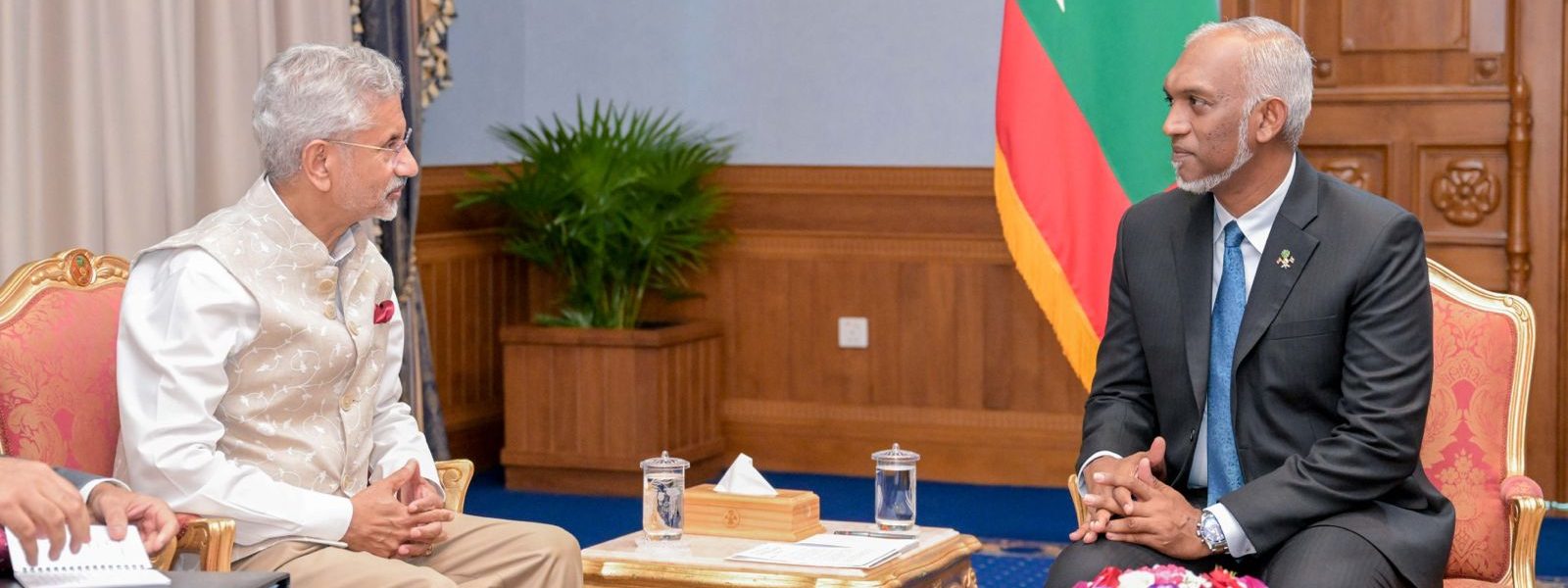Relations between India and the Maldives have been tense since President Mohamed Muizzu took office in November 2022. He campaigned on the anti-India platform “India Out”, which aimed to reduce India’s influence in the island nation. However, less than a year later, it appears that Muizzu is shifting his stance. The Maldivian government has announced that Muizzu will visit India soon, signaling a potential thaw in relations.
According to reports, the visit to New Delhi is expected to happen next week, with dates being finalized. This change in approach comes at a time when the Maldives appears to be reevaluating its stance on India, a key partner in tourism, trade, and infrastructure.
The Fallout: Resignation of Ministers After Anti-India Remarks
The announcement of Muizzu’s visit coincides with the resignation of two deputy ministers from the Youth Ministry, Malcha Sharif and Mariam Shuna, who had caused a diplomatic stir earlier this year. In January, they made derogatory comments about Indian Prime Minister Narendra Modi during his visit to Lakshadweep, a set of islands close to the Maldives. Modi was there to promote the islands as a tourist destination, but the Maldivian ministers responded with insults, which led to widespread outrage in India.
The backlash was swift. Calls for a boycott of Maldives tourism grew in India, and with Indian tourists making up a large portion of visitors to the Maldives, this had an immediate impact on the island nation’s economy. The two ministers were suspended shortly after the incident, but they only officially resigned recently, just before Muizzu’s visit to India. While the government claims the resignations were for “personal reasons,” the timing suggests a deliberate attempt to smooth relations with India ahead of the president’s trip.
A third official involved in the scandal, Abdullah Majid, remains in office for now, but his future is uncertain given the diplomatic pressure to reset ties with India.
India’s Strategic Patience and Long-Term Diplomacy
Muizzu’s decision to visit India signals a dramatic shift in his approach, considering his “India Out” campaign during the election. This shift did not occur overnight. India has maintained a patient, long-term diplomatic strategy, even as tensions escalated between the two nations.
One key area where India has continued to invest in Maldives’ development is through the Thila-Male Bridge Project. Worth $500 million, the bridge is a major connectivity project in the Maldives, funded entirely by India through a mix of grants and credit. The bridge, which will link several islands, is expected to be completed by 2026 and represents one of the largest infrastructure initiatives in the Maldives. Despite the political tensions, India has ensured the project continues, demonstrating its commitment to its southern neighbor.
This approach seems to have worked. The steady progress of the Thila-Male Bridge Project likely reminded the Maldivian government of India’s essential role in its development, leading to a reassessment of its stance on bilateral relations.
Defense Ties Strengthened Amid Diplomatic Reset
Further evidence of improving ties came from the Fifth Maldives-India Defense Cooperation Dialogue, held earlier this week. Both nations agreed to strengthen defense collaboration and deepen their strategic cooperation, a stark contrast to Muizzu’s earlier campaign promises.
When Muizzu first came to power, he pledged to expel Indian troops from the Maldives, troops that were stationed there for humanitarian and search-and-rescue missions. In May 2023, he fulfilled that promise, sending the Indian troops home. However, this defense dialogue shows that Muizzu is now open to rebuilding military and strategic ties with India.
This shift could be a recognition of India’s critical role in ensuring Indian Ocean security, as well as the Maldives’ growing reliance on India for both infrastructure and defense cooperation.
India’s Neighborhood First Policy in Action
President Muizzu’s visit to India and the resignation of anti-India officials indicate a broader recalibration of relations between the two nations. This diplomatic reset aligns with India’s Neighborhood First Policy, which prioritizes fostering strong ties with neighboring countries through economic cooperation and diplomacy. Despite Muizzu’s initial hostility, India has remained committed to building bridges—literally and figuratively.
The Maldives’ strategic location in the Indian Ocean makes it a vital partner for India, and New Delhi has worked diligently to keep the relationship on track, even during periods of diplomatic strain. Muizzu’s attendance at Prime Minister Modi’s swearing-in ceremony earlier this year was the first sign that he was warming up to India, and now, his planned visit marks a significant step toward normalizing relations.
A Diplomatic Victory for India?
For India, Muizzu’s upcoming visit and the resignations of ministers who insulted Prime Minister Modi can be seen as a diplomatic victory. By continuing to engage with the Maldives despite political challenges, India has demonstrated the value of its long-term approach to regional relations.
As Muizzu prepares for his first official visit to India, it’s clear that the “India Out” campaign is no longer viable. The Maldives’ dependence on India for tourism, infrastructure, and defense cooperation has forced a reconsideration of its foreign policy.
This reset in relations may also be a reflection of India’s growing influence in the region, as New Delhi works to strengthen its ties with smaller nations in the Indian Ocean through diplomacy and development initiatives. While it remains to be seen whether this turnaround is permanent, Muizzu’s visit is a clear indication that the Maldives is ready to engage more constructively with India.






